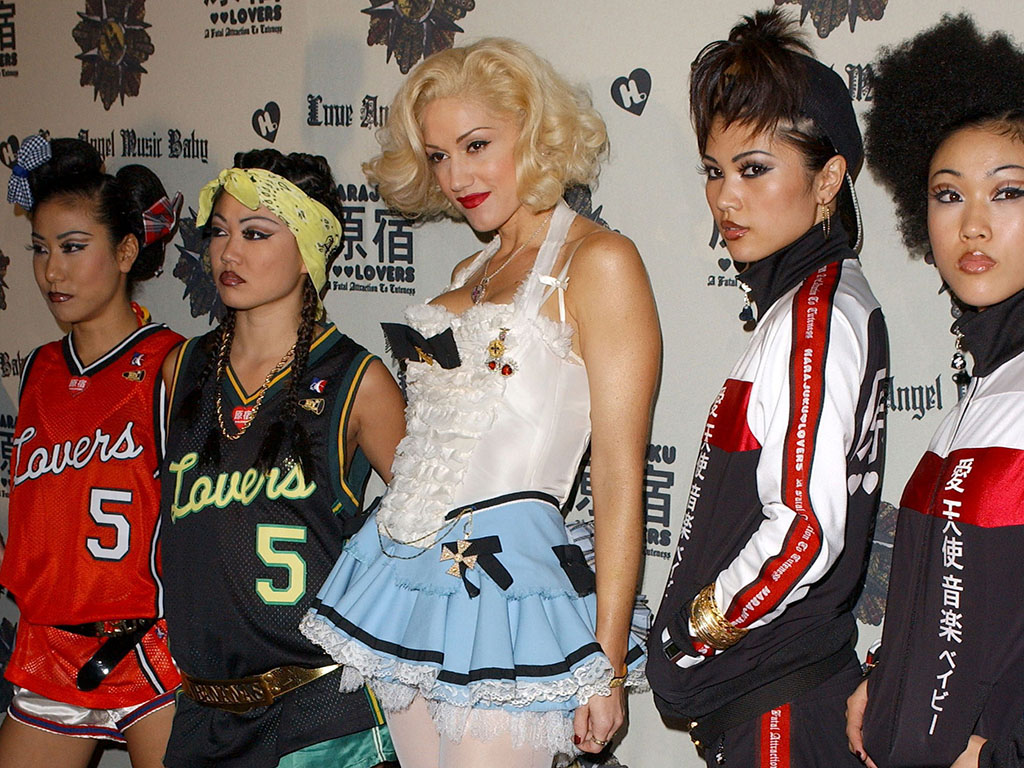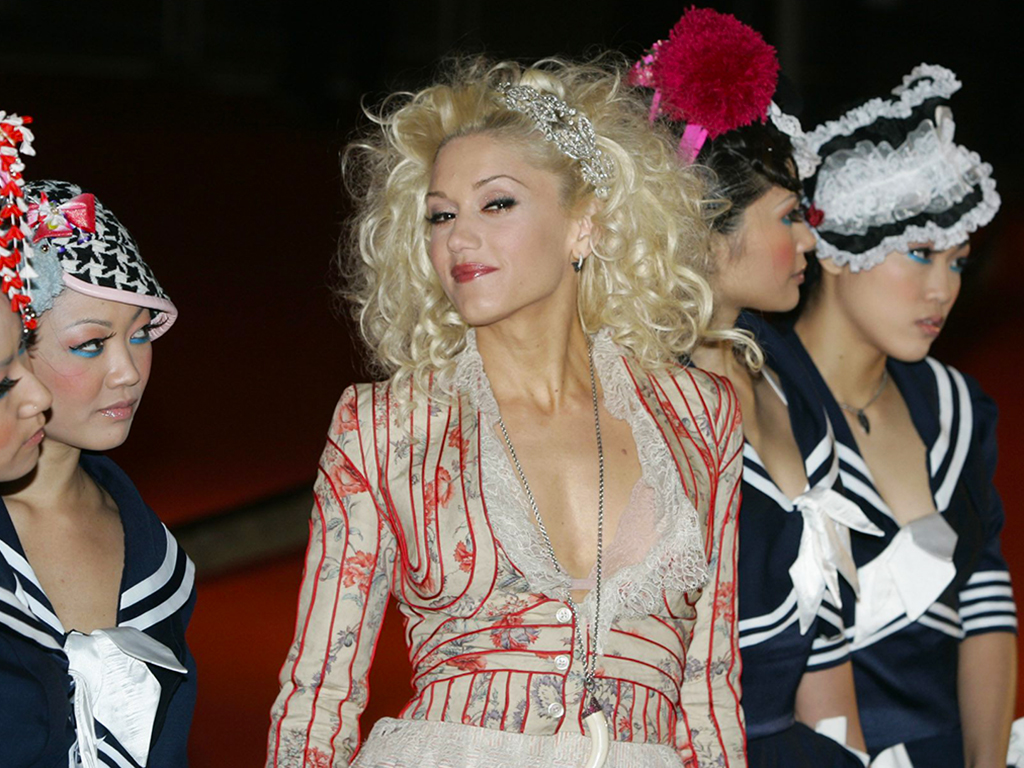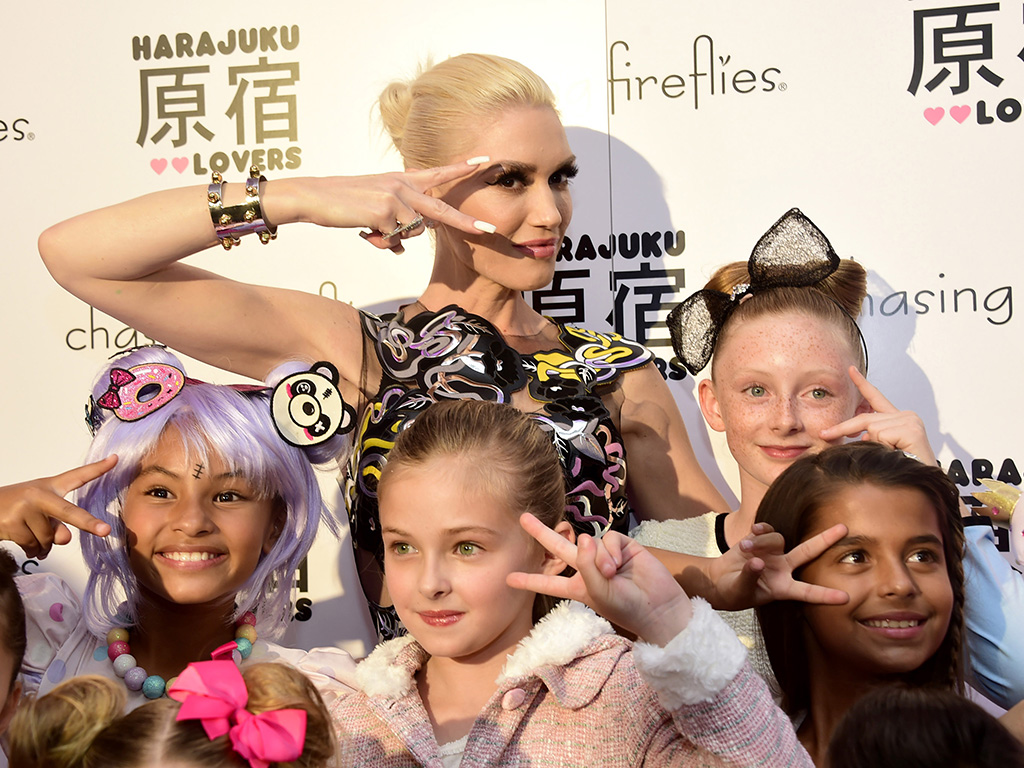Fifteen years ago this month, Gwen Stefani released her debut solo album, Love. Angel. Music. Baby. (2004).

The five-time Canadian platinum album spawned not only some of the former No Doubt frontwoman’s biggest hits — including What You Waiting For? and Hollaback Girl — but also marked the beginning of the singer’s highly controversial Harajuku Girls era.
Harajuku is a popular fashion district located in Tokyo’s Shibuya ward in Japan. It’s best known as one of the world’s trendiest hotspots for youth culture.
Stefani, now 50, seemingly adapted to the Harajuku culture and utilized it as her own before officially launching the Harajuku Lovers clothing line in 2005.
First, however, she released the Harajuku Girls single before enlisting four women of Japanese descent — the Harajuku Girls — as both her entourage and backup dancers on the extensive Harajuku Lovers tour in 2005.
Over the years, Stefani’s so-called “bow-down” to Asian culture has raised eyebrows across the globe, with many accusing her of cultural appropriation.
When talking about the anniversary of Love. Angel. Music. Baby. with Billboard on Tuesday, Stefani defended herself, merely calling it a “concept” and denying accusations of cultural appropriation.
READ MORE: Grammy nominations 2020: Lizzo, Billie Eilish and Lil Nas X lead the pack
On what initially inspired her to create her own “concept” about the culture, Stefani claimed that she “had a fascination from a young age” after learning that her father used to travel to Japan when he worked with Yamaha.
“You take pride in your culture and have traditions and then you share them for new things to be created.

Get breaking National news
“When the Harajuku Girls came out,” she said, “it was like, ‘You’re not even real, you’re a dream.’ It wasn’t like, ‘You’re not real because you’re Asian.’ Are you kidding me? That would be horrifying.”
READ MORE: Taylor Swift fans crowd-fund billboards to send message to Scooter Braun
Mihi Ahn of Salon.com, thought otherwise, however. In 2005, she penned an article criticizing the Rich Girl singer, saying she had “swallowed a subversive youth culture in Japan and barfed up another image of submissive giggling Asian women.”
Ahn described actual Harajaku girls as “funky dressers who hang out in the Japanese shopping district of Harajuku.”
She later claimed Stefani’s backup dancers were “contractually obligated to speak Japanese in public,” saying it was rumoured the women were actually Asian-American and spoke English.
READ MORE: ‘South Park’ tackles trans athletes in controversial episode
Though she’s been criticized massively over the years for several different accusations of cultural appropriation, Stefani’s in-depth interview with Billboard seemingly prompted a new wave of anger, as many individuals took to social media to share their thoughts.
Here’s what some Twitter users had to say:
https://twitter.com/_juditoris/status/1196654509864472578
https://twitter.com/clergieman/status/1194835591067770882
Back in 2005, Blender Magazine writer and Asian-American comedian Margaret Cho labelled Stefani’s take on Harajuku girls as a “minstrel show” that promoted the stereotyping of Asian women.
READ MORE: Studio exec wanted Julia Roberts to play Harriet Tubman, screenwriter says
Global News has reached out to a representative of Stefani seeking further comment.
A 15th-anniversary reissue of Love. Angel. Music. Baby. will be released this Friday, Nov. 22.















Comments